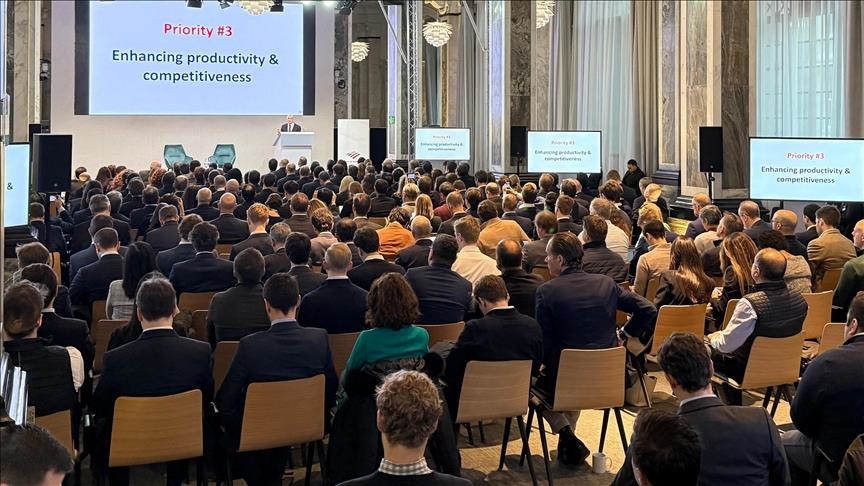
Turkish Finance Minister Mehmet Simsek shared key economic updates at the Bank of America (BofA) Securities Türkiye Conference in London on Wednesday.
The minister outlined how Türkiye plans to support disinflation, highlighting ongoing reforms and policies aimed at controlling inflation, particularly in the sectors of food, housing, and energy.
Simsek emphasized that Türkiye is focusing on both demand and supply-side measures to continue reducing inflation.
He explained that these measures, including a more supportive wage policy and an administered price package, will help lower inflation while keeping fiscal policies in line with the country’s inflation target.
He also noted that Türkiye’s budget deficit is expected to decrease to around 3% of GDP this year, thanks to efforts to reduce public spending.
In terms of fiscal adjustments, Simsek pointed out that Türkiye had updated the lump-sum taxes on fuel, tobacco, and alcohol, linking the adjustments to the domestic producer price index (D-PPI) for the past six months.
He shared that the increase in the special consumption tax (SCT) on fuel had been kept below the D-PPI at 6%, which would lead to an estimated 1.4% increase in average sale prices.
The decision results in a tax revenue sacrifice of around 12 billion Turkish liras ($338.4 million).
Simsek also spoke about Türkiye’s broader economic initiatives, mentioning how support for irrigation and land consolidation projects will contribute to strengthening the food supply chain.
Additionally, he highlighted the country’s commitment to rebuilding areas affected by the recent earthquake in the southeast, as well as boosting social housing and urban transformation efforts.
He further outlined the role of gold import normalization and reduced energy imports in improving the country’s current account deficit and minimizing the need for external financing.
Additionally, Simsek noted that Türkiye’s major trading partners were showing signs of improved growth prospects this year, with the economic recovery in Europe offering promising opportunities for Türkiye.
The minister also stressed Türkiye’s resilience against rising geopolitical tensions and growing protectionism worldwide.
He acknowledged Türkiye’s increasing influence in global defense spending, along with its soft power through active diplomatic efforts, humanitarian aid leadership, and free trade agreements with 54 countries, including the EU.
Simsek confidently stated that Türkiye would continue to play a pivotal role in the reconstruction of conflict-stricken areas like Ukraine, Libya, Yemen, Gaza, and Syria once peace is restored.
In closing, Simsek underscored that Türkiye’s focus on structural reforms, infrastructure investments, and green transformation would be key to increasing productivity and further stabilizing the economy.

